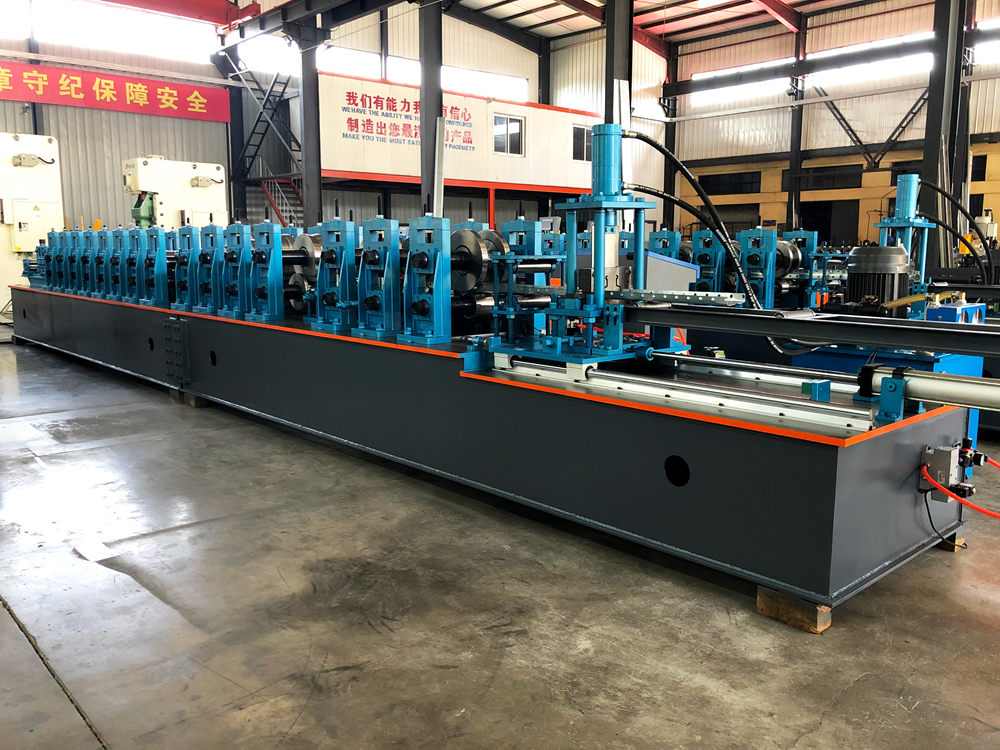
The Advancements in Metal Roofing Tile Machines
In recent years, the construction industry has witnessed significant advancements in roofing technologies, particularly with the introduction of metal roofing tile machines. These machines have revolutionized the way roofing materials are produced and installed, offering unparalleled efficiency, durability, and aesthetic appeal.
The Importance of Metal Roofing
Metal roofing has become increasingly popular due to its longevity, energy efficiency, and minimal maintenance requirements. Unlike traditional roofing materials such as asphalt shingles or clay tiles, metal roofs can last 40 years or more with proper maintenance. Moreover, they are resistant to mold, rot, and insect damage, making them an environmentally friendly choice. The integration of metal roofing tile machines facilitates the production of roofing tiles that not only uphold these benefits but also provide a variety of styles and finishes to match different architectural designs.
What are Metal Roofing Tile Machines?
Metal roofing tile machines are specialized pieces of equipment designed to produce metal roofing tiles in various shapes and sizes. These machines use a combination of advanced technology and precise engineering to manufacture tiles efficiently while ensuring quality control. They work by transforming raw metal sheets into finished products through processes such as shearing, bending, and rolling.
Types of Metal Roofing Tile Machines
There are several types of metal roofing tile machines, each serving a unique purpose in the manufacturing process. Common types include
1. Roll Forming Machines These machines are crucial in shaping the metal sheets into tiles. They work by feeding a continuous strip of metal through a series of rollers that gradually shape it into the desired profile. The end result can be a smooth, sleek finish or a textured surface depending on the design requirements.

2. Cut-to-Length Machines These units are essential for cutting the metal sheets to the exact length needed for producing roofing tiles. Accurate cutting is vital to ensure consistency across the production line and to minimize waste.
3. Bending Machines Bending machines are used to create intricate angles and curves in the metal tiles, allowing for diverse architectural aesthetics. The precision of these machines ensures that the bends are consistent and fit perfectly during installation.
4. Coating Machines Some modern metal roofing tile machines integrate coating systems that apply protective layers of paint or other finishes. This not only enhances the appearance of the tiles but also helps to extend their lifespan by providing additional resistance to weather elements.
Efficiency and Economic Impact
The use of metal roofing tile machines has significantly boosted production efficiency. In traditional methods, manufacturers often faced issues such as labor shortages, inconsistent quality, and time-consuming processes. In contrast, automated metal roofing tile machines streamline manufacturing, reducing labor costs and turnaround times. As a result, businesses can meet growing market demands without compromising quality.
Moreover, as construction companies increasingly adopt sustainable practices, metal roofs produced through these machines align with eco-friendly goals. Metal roofing is often made from recycled materials and is fully recyclable at the end of its life cycle, making it a responsible choice for modern construction projects.
Conclusion
Metal roofing tile machines are an essential innovation in the construction industry, bringing forth a new era of efficiency, quality, and design versatility. As technology continues to evolve, we can expect further improvements in machine capabilities and production techniques. The shift towards metal roofing not only enhances building aesthetics but also contributes to sustainable construction practices, making it a smart investment for future projects. As we embrace these advancements, the future of roofing looks not only robust but also bright.